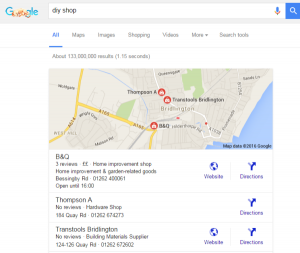The COVID-19 pandemic has already had an immense impact on the global economy. In the US alone, more than 6 million people have filed for unemployment, the stock market has had its worst day since 1987, and restaurants, bars, gyms, and entertainment centers have been issued to close. Unfortunately, the people who will feel these changes the most are small business owners and their employees.
As the health crisis is taking wing in the Western world, companies are facing the challenges of adapting to the situation. Those who could, have switched to a remote model of work, while others have had to come up with other creative ways of continuing to make a living.
Are you wondering how your small business will survive COVID-19? The tools and advice below can help you get through these difficult times.
Staying informed

QuinceCreative / Pixabay
During the Coronavirus situation, the most important thing you want to pay attention to is keeping up to date on the latest information. Try to keep a cool head and make sure your sources are trustworthy.
From a business point of view, you need to start acquainting yourself with any possible government measures intended to help small-sized companies.
In the USA, a Paycheck Protection Program (PPP) has been rolled out, aiming to ensure that small businesses can continue paying employees and costs during the crisis. On the other hand, in the UK, small businesses are eligible for £10,000 cash grants, or up to £25,000 for those operating in the retail, hospitality, and leisure industries.
Check with your local authorities whether your business is eligible for these relief measures. Some may require an application, while others will be awarded automatically.
Making adjustments to your operations

justynafaliszek / Pixabay
When it comes to operating during a crisis, don’t forget that you’ll likely have to make significant changes to your workflow. The first thing to decide will be whether you can switch to a remote work model or not.
If the answer is a no, try to come up with ways to keep operations going. Some businesses are scaling down so that only essential personnel is present at the worksite. Employers should take care that workers are issued with personal protective equipment, that they’re able to keep a distance of the recommended 6ft, and that all spaces are regularly disinfected.
While certain retail stores and hospitality businesses may need to close their doors to the public, fortunately, this won’t mean completely stopping work. It will mean, however, that you’ll need to find new ways of interacting with customers. The best tools for this include:
1. E-commerce
As customers can’t come to your store, you’ll want to give them an alternative way to shop with you. Setting up an online store is the single best way to do that. You don’t want to spend too much money on this right now, so look into free options such as PrestaShop. Alternatively, you can go with Shopify (who are extending their trial period to 90 days during the COVID-19 pandemic), or simply choose Facebook Marketplace.
2. Customer communication
Be prepared for the possibility that your sales will go up or that your regular customers will be looking for ways to get in touch. Make sure they can easily reach you. Check emails and social media accounts regularly. Tools such as Buffer Reply could help make your efforts easier, but live chat features are another excellent alternative. Olark is easy to set up and costs as little as $ 12 per agent per month.
3. Making important information available
When it comes to practical information, such as your current working hours or possible shipping delays, make sure your customers stay informed. Update your website, social media accounts, and send out a quick email. The easiest way to create an email campaign is through Mailchimp, which you can continue using for marketing purposes once this is all over and done with.
Keeping your team engaged and productive

mohamed_hassan / Pixabay
In addition to dealing with the changing demands of the market, you’ll also need to address your team’s internal needs. For most small business owners, this is difficult to do when everyone is working from home. Fortunately, you can start using some basic remote tools. They’ll not only come in handy now but might prove to be useful in the future as well.
1. Stay on top of deadlines
The COVID-19 pandemic is likely to slow down some aspects of your business, so you’ll want to pay special attention to deadlines. The key to successful planning is as simple as having a calendar. You can use an old-school paper one or opt for an app that features scheduling capabilities and video conferencing integration.
2. Project management
While email is inevitably going to play a big role in your internal company communication, don’t rely on it for project management. Information is just too easy to lose in an overflowing inbox. If you aren’t already, start using a project management tool such as Basecamp or Asana. These will allow you to follow progress on every aspect of your business, as well as to share feedback on finished tasks.
3. Keep files easily accessible
Right now, the best place to store your files will be in the cloud, as this will allow everyone on your team access to the things they need to do their job. If you’re on a limited budget, go with Google Drive, or if you don’t mind paying a monthly fee, choose Dropbox.
4. Track your team’s work
For some small business owners, remote work poses a challenge because it makes it difficult to track employee working hours. The Time Doctor app solves this problem through tracking time, tasks, projects, visited websites, and apps. It even offers functions such as keyboard and mouse activity tracking, as well as screen captures. Plus, you can integrate it with payroll, which is a bonus.
Final thoughts
There you have it, the best tips and tools to help your small business through COVID-19.
Of course, the most important thing at this moment will be for you and your team to remain healthy and safe so that you can go back to business as usual as soon as possible. That’s not to say that this situation won’t be a learning opportunity. After all, it’s making you think of new ways to conduct your business, so it’s already opening up space for future growth.
Business & Finance Articles on Business 2 Community
(70)








